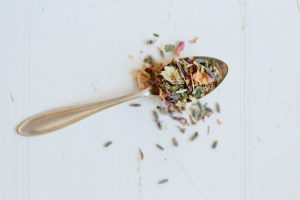The Naturopathic Co.

You're using an outdated browser. Please upgrade your browser to improve your experience.
SPEED READ>> For our gut to be strong, we need the perfect balance of micro-organisms. In order to achieve that, we must feed it nutrient-rich foods to foster the growth of good bacteria.
The health of our gut is immensely important, as we now know the link between gut inflammation, skin inflammation, mood disorders, lowered immunity, and a multitude of other health conditions which are influenced by the state of our gut and the diversity of our microbiota.
Studies show that cultivating diverse and beneficial gut flora is the key to strong immunity, robust digestion, detoxification, balanced moods, balanced hormones, weight loss, and longevity. It is this internal complex ecosystem, our microbiome, which keeps us in good health.
Good gut flora can diminish by taking antibiotics, eating too much processed foods and sugar, stress, and alcohol. This may lead to a proliferation of bad bacteria or an imbalance in the flora, which studies show is linked to various health conditions such as obesity, digestive complaints, skin problems, depression, anxiety, and cancer.
Studies have shown the link between the bacterial strains found in the microbiota with a person’s digestion, body weight, the way they store fat, and metabolism.
Too much bad bacteria can also damage the integrity of the gut lining, allowing toxins to enter into the bloodstream where they trigger an inflammatory or autoimmune response in the body.
So how do we get more good bacteria in our gut? We can take clinically tested probiotics, but another way to encourage healthy bacteria is through the consumption of lactobacilli in lacto-fermented foods. These foods are rich in nutrients and carry better microbial diversity than just the few strains found in a probiotic.
Consuming fermented foods at each meal also helps you to better digest the other foods you eat with them, allowing you to absorb more nutrients from your meal whilst populating your gut with beneficial bacteria.
Below are a list of fermented foods you may want to consider adding to your diet
Coconut kefir is a fermented, slightly tangy dairy-free kefir, with a thin yoghurt-like consistency. It contains probiotics plus natural enzymes, vitamins, minerals, protein, and calcium.
Research shows that when you consume dark chocolate good microbes eat it and ferment it, producing an anti-inflammatory affect.
Raw fermented cabbage is rich in vitamins, minerals, digestive enzymes, and probiotics.
Similar to sauerkraut but originating from Korea, Kimchi is made from fermented cabbage is believed to lower blood pressure, improve immunity, boost metabolism, and protect against cancer.
Lacto-fermented pickles can be made from carrots, radishes, cucumbers, and many more vegetables. Put in a sterile jar with salt and herbs and wait for them to ferment.
Raw apple cider vinegar encourages better digestion, it’s high in minerals, and supports the growth of friendly gut bacteria. (You need to have the cloudy ‘mother’ floating in the bottle).
A fizzy, probiotic tea, which is brewed from bacteria called a scoby (symbiotic colony of bacteria and yeast). Kombucha has been drunk in China for thousands of years, and is rich in B vitamins, digestive enzymes, and probiotics.
Is a Japanese staple made from fermented soybeans.
Made from fermented soybeans or grains and is rich in nourishing minerals such as potassium. It’s best raw and unpasteurised for full health benefits.
Many fibrous plants contain an insoluble fibre known as inulin, which ferments in the colon and feeds your good gut flora. Therefore, eating some insoluble fibre foods (prebiotics) as well as probiotics can help to build beneficial bacteria in the gut more quickly.
It is also really important to encourage the growth of healthy bacteria in the gut through a wide variety of food sources, fresh vegetables loaded with phytonutrients (5-7 serves per day, including leafy greens, broccoli, cauliflower, cabbage, beetroots, carrots, tomatoes, onions, leeks, peas, legumes, sea vegetables), fruit (such as apples, blackberries, strawberries, blueberries, oranges, plums, and pomegranite), as well as herbs and spices, nuts and seeds, and quality protein sources.
If you’d like to know if you have healthy numbers of beneficial bacteria in your gut, or perhaps if you have an imbalance in pathogenic bacteria, then talk to your naturopath about being tested. Stool tests can determine your levels of bacteria, as well as important biochemical markers including digestive absorption and metabolic markers. Testing provides an excellent assessment of digestive function and is not only a good idea for those suffering from suboptimal gut function, but for all of us who are keen to optimise health.
The Naturopathic Co. Melbourne Naturopath 2020
Comments are closed.